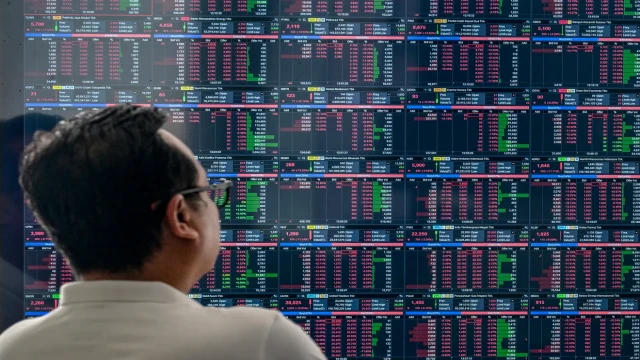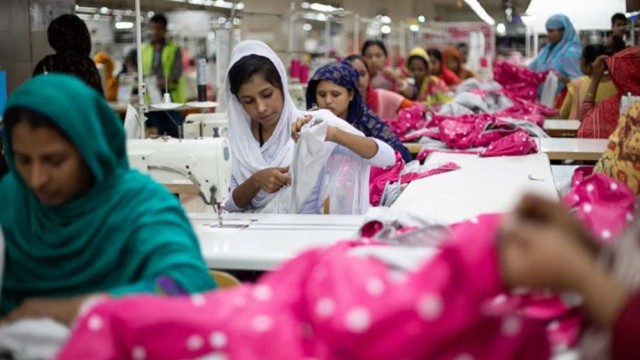Washington, April 9 (V7N) - The Trump administration has announced that it will impose tariffs of up to 104% on Chinese goods starting at 12:01 a.m. Wednesday, following a sharp escalation in the ongoing trade dispute between the U.S. and China. White House Press Secretary Karoline Leavitt confirmed the new tariffs on Tuesday, asserting that the decision was in response to China's retaliatory measures.
President Trump had initially threatened to raise tariffs by an additional 50%, on top of the existing 20%, after China planned to implement a 34% tariff on U.S. goods. Leavitt said the administration had no plans to back down, emphasizing that Trump's "America First" approach meant responding aggressively to China's actions.
Stock Market Reacts to Tariff News
Global markets initially rallied on the possibility of tariff negotiations, but by the end of the day, stock indices were in the red. The Dow Jones Industrial Average dropped by 0.048%, or 18.36 points, to 37,947.24. The S&P 500 fell by 0.79%, or 39.93 points, to 5,022.32, and the Nasdaq lost 1.68%, or 261.48 points, to close at 15,341.78. These declines followed news of new tariffs and concerns about the economic impact of the trade war.
The volatility continued the following Monday, with heavy trading as reports suggested Trump might delay tariffs, only for those reports to be denied later in the day.
China's Strong Response
In response to the U.S. tariff threats, China has strongly rebuked Trump's actions, labeling them as "blackmail" and warning that it will "fight to the end." However, Treasury Secretary Scott Bessent told Fox News that China’s refusal to compromise could prove to be a mistake, as the U.S. exports significantly less to China than it imports from the country, giving the U.S. a strategic advantage.
Focus on Trade Negotiations
Despite the harsh rhetoric, Trump has expressed openness to negotiating with China, stating that he would "be incredibly gracious" if China reaches out for a deal. Meanwhile, the U.S. is also prioritizing talks with other nations, including South Korea and Japan, which are seeking favorable terms in trade discussions.
U.S. Trade Representative Defends Tariffs
In a Senate Finance Committee hearing, U.S. Trade Representative Jamieson Greer defended the tariffs, arguing that the U.S. needs to shift away from an economy overly dependent on government spending and finance, and instead focus on manufacturing. Some Republican lawmakers have expressed concerns about the economic consequences of the tariffs, particularly the potential impact on the stock market.
Global Trade Talks Intensify
As part of the broader trade discussions, Indonesia announced it would reduce taxes on some goods, including steel, in exchange for tariff concessions. Meanwhile, British officials are seeking a deal to lower tariffs imposed on key industries such as cars and steel.
Challenges for Small Businesses
Small businesses are especially vulnerable to the tariffs, with concerns over rising costs for imported goods. Many are reassessing their supply chains to cope with the additional financial strain. Ben Johnston, an executive at a small-business lending company, voiced concerns about how small businesses will manage the uncertain economic environment created by the tariffs.
Trump's Continued Defense of Tariffs
Trump has continued to defend his tariffs, stating that they are a necessary step to "reset the table" on trade. He emphasized that while negotiations may take place with other countries, the tariffs could remain in place as part of a broader strategy to improve the U.S. economy.
As the U.S. and China remain locked in a trade standoff, global markets will continue to watch the situation closely, weighing the potential for negotiation or further escalation.
END/WD/SMA/































Comment: